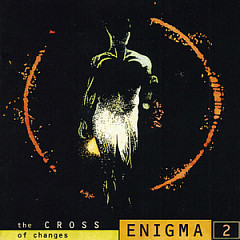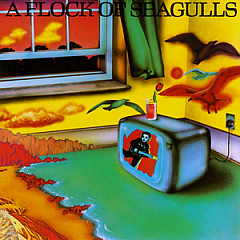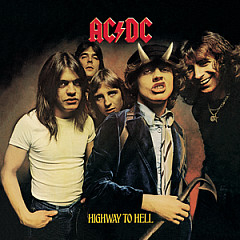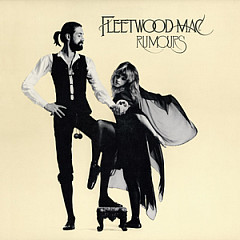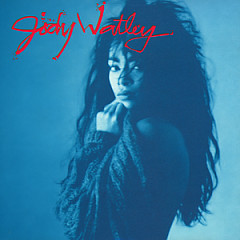Career highlights include the album The Golden State, which the esteemed Mitchell Froom helped produce, and tours with Alaska! and Lou Barlow's lo-fi pioneers, Folk Implosion.
This artist's music is like aural retreat, far from the hustle and bustle of everyday life. The instrumentals are mostly warm, and oftentimes built around exotic world music strains, but the voice – oh, that voice! – is beautifully comforting.
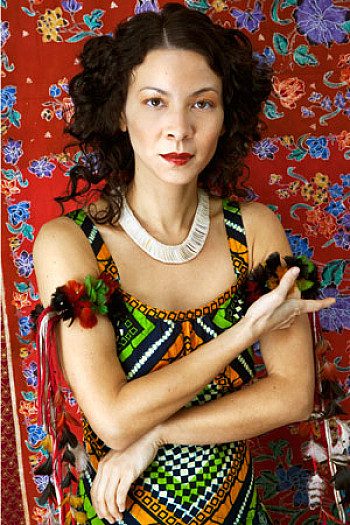 Dan MacIntosh: (Songfacts): How are you?
Dan MacIntosh: (Songfacts): How are you?Mia Doi Todd: I'm good.
Songfacts: You say that like you're not sure.
Mia: Well, I am actually six months pregnant.
Songfacts: You are?
Mia: So every day is a new day. I'm a little tired at the moment. I get sometimes tired in the afternoons.
Songfacts: Sure. Is this your first?
Mia: Yes.
Songfacts: My goodness. What a great new adventure, huh?
Mia: Yes. I'm excited about it. I just hope she's healthy and happy. I'm trying to eat well.
Songfacts: Well, this interview is for Songfacts, so I wanted to talk to you about songs and songwriting. And one of the things that I read was that your most recent album, Cosmic Ocean Ship, a lot of it was written around your travels. Did you write while you were traveling, or were you reflecting upon the places that you went?
Mia: Both. For example, the song "La Havana," I wrote the guitar part and the melody, but not the lyrics, while I was in Havana, Cuba, sitting on this amazing rooftop looking out over the city out into the ocean. It was such a beautiful guitar part, I wanted to find just the right lyrics, and that sometimes takes quite a long time. So it wasn't until about a year later that I figured out how to say what I meant.
And then, for example, "Paraty," I wrote the guitar part and the melody while I was in Brazil, but it wasn't until I came home and reflected on my travels that I was able to finish the lyric. And it was very much based on real life events. I think all of my songs are. I don't take on other personas or anything like that to write songs.
Songfacts: And a lot of the songs on this album I notice are related to nature. Is that something that you find inspirational?
Mia: Absolutely. Nature is, for me, the most healing of all things. And inspiring, too. So I look to nature to show me the way if I'm ever fearing and misguided or something like that.
Songfacts: You're associated with the whole Laurel Canyon scene. Do you live near or in Laurel Canyon?
Mia: Not at all.
Songfacts: No?
Mia: I've only been there a few times. (Laughs) But I think maybe that association is more Jonathan Wilson, who produced the record. He lived in Laurel Canyon for a while and had those kind of things where everybody would get together and jam. But I actually never met him and never tried to sit in on any of that. Maybe the reason I'm thought of with the canyon is because I'm so much in tune with Joni Mitchell and her songs and was so inspired by her. That might be why you might associate me with Laurel Canyon.
Songfacts: Have you ever met Joni?
Mia: I have. I was very lucky to be invited to her house once for a Christmas party of only about 10 people. And I had brought a CD of mine to leave with her. She's a huge idol of mine and I was almost mortified to be in her presence. So the person who had invited me said, "Oh, Joni, Mia's a great singer/songwriter. You've got to hear her music." And Joni was like, "Well, how can I hear it?" And I said, "Oh, I brought you a CD," just meaning to give it to her. But instead she put it right in the CD player and we had to listen to it as we played pool. And I almost evaporated. I was so just embarrassed.
Songfacts: Did she like it?
Mia: I think she did. And then we had some other mutual friends who gave her some of my other music and told me that she did enjoy it. I would love to get her on my new record. I want to make a little record - I've been learning to sing two of her songs, and her songs are very challenging to sing. Not too many people sing them, because they have very wide vocal range and are too emotional to do them justice to sing them. So I have been learning some and plan to record them privately and maybe try to share that with her.
Songfacts: Do you have any favorites?
Mia: Too many to name one or two. Yeah.
Songfacts: In addition to doing your private Joni Mitchell covers mix tape, are you working on anything else right now?
Songfacts: No. I need to look at that.
Mia: You'll have to check it out. I produced the video myself and sewed all the costumes and it was such an undertaking, and it was really a communal event. So it led Kimberly and I to investigate our collaboration further. So we're doing this one hour multimedia piece together. And so that's what I'm doing right now, writing the songs for that.
Songfacts: Did you say that you're sewing the costumes?
Mia: I'm sewing the costumes for the video. I'm a very good seamstress it turns out. My grandmother was a seamstress for a living and taught me how to sew when I was about five. So I love to sew and I sewed beautiful costumes for the "Canto de Lemanjá" video and Kimberly's using that other costume I made as the main costume for this upcoming performance. It was very much a traditional Brazilian Candomblé costume for "Lemanjá." And that's the whole long story, which the multimedia people try to get into with "Lemanjá."
Songfacts: Are you concerned about being six months pregnant and performing?
Mia: Yes. It is definitely a concern. My breath capacity is not quite what it normally is; because the baby pushes up into your diaphragm and your lungs and takes up a lot of room. So I don't have the normal breath capacities and stamina that I sometimes do. But I have a new reason for living and a creative urge. So I'm counting on that and my friends, great musicians around me, supporting me to carry me through it. And Kimberly is very excited for me to be huge and pregnant. [Laughs] "Lemanjá" is very much a mother goddess, so it's part of the whole thing for me to be going through all this at the same time.
Songfacts: Now, you mentioned that you know that she's a girl.
Mia: It's a girl, yeah.
Songfacts: Have you chosen a name?
Mia: Not yet. We're toying with different ones. It's hard. As a girl growing up you think of a million names of all the daughters you're going to have. But then as soon as it's for real, it's very hard to decide on names, because it's going to stick forever, probably. I was named very haphazardly. My parents were convinced I was going to be a boy, because my grandfather had recently passed away, and they were convinced he would be reincarnated; I would be reincarnated as my grandfather, and I would be a boy. But they hadn't chosen any girls names. So when they left to the hospital, they had to quickly choose a girls' name, and luckily they chose a nice one. I like my name. I didn't as a young child. I wished I had a more conventional name. But now I like my name. It's good.
And there's a lot more Mias. I meet a few baby girls named Mia, so it's come around.
Songfacts: Just don't give your daughter one of those celebrity names that's named after a fruit or a perfume.
Mia: Oh, no. We're trying to find something that's pure. But not too obscure. Kind of more classic.
Songfacts: Good. Well, you mentioned that your friend Kim is a dancer, but you have a dance history as well. Do you still continue to dance?
So if I had started younger, I would have loved to have been a dancer. But it's something I think you have to start very young, so I chose music to focus on more, but I tried to keep dance in my life. So it's so fun to collaborate with a dancer and she's planning to choreograph me a little bit into the dance. She's very excited to have big old pregnant me to choreograph. So I do dance. But these days, less Butoh and more fun samba/salsa. But actually, in the last few months, I'm not fit for that, either. I'm just walking.
Songfacts: Why do you think you're so enamored with international music? You incorporate so many different musics. Has that just been the way you were raised, being more of an international person?
Mia: Yes, I think that's true. I'm a person of mixed race, so I was used to always looking to find myself, and identifying more with the other than with the obvious American culture. And I'm super American. I was born here, my mother, my grandmother, they were all born in L.A. I definitely feel like a Los Angelena, but that means so many things. And it's not the typical stereotype of what Hollywood is. Being from L.A. is having so many different influences all around you.
My mom brought me up, she's Japanese American, and so she very much wanted me to have a feeling for Japanese culture. She loves to travel, and she gave that love of travel to me, and she took me all over the world with her. So I started absorbing different world cultures from my young age. And I just kept trying to digest all this. It wasn't until I went to Brazil and collaborated with the musicians there that I felt like I could bring that into my music. I always felt that I was like a singer/songwriter, very American, like inspired by Leonard Cohen and Joni Mitchell, who are both Canadian, but they're North American. And so I loved Ethiopian music and Brazilian music and Cuban music and Sufi music.
It wasn't until I went to Brazil that I felt very accepted. I fit in quite a lot there. I looked Brazilian. I could sing. So I felt like I was finally justified in trying to incorporate those things into my own music. And that's very much what this last album accomplished, I think. Singing "Gracias a la Vida," I'm not a native Spanish speaker. It's not my first or second language, and I didn't know if I had the right to sing and perform and record that.
But also "Canto de Lemanjá," same with Brazilian Portuguese. I'm not a native speaker, so there's plenty of great Brazilian singers, why should I sing Brazilian music? But I came around to thinking that these are such beautiful songs that if you can sing them, you really should. Because songs need to be sung in order to have their own life and keep living. So I can sing them and I should, to share them with whoever wants to hear.
Songfacts: Can you remember when you had the talent to write songs?
 Mia: My first song I wrote when I was about 16. And then I didn't write another song until I was about 18, and I started writing a lot of songs. I have some tapes somewhere of the first generation of songs I wrote - they never got released or recorded well or anything.
Mia: My first song I wrote when I was about 16. And then I didn't write another song until I was about 18, and I started writing a lot of songs. I have some tapes somewhere of the first generation of songs I wrote - they never got released or recorded well or anything. But when I was about 19, 20, I started writing songs that I still sing today. And I do remember the first one I wrote that I really felt like I had come on to something. It's called "Planting," and it's about planting a garden. I was working as a secretary at the time, making Xerox copies all day long. And the song was definitely a getaway from my mundane existence. It gave me a lot of joy, and I think that's what made me keep at it.
Songfacts: Have you always played guitar?
Mia: No. I have never taken a guitar lesson. I didn't start until I was about 16. I started right in writing songs rather than learning to play Beatles songs or Bob Dylan or Bob Marley songs, as a lot of people learn to play the guitar. My hands are really tiny, so I had to compensate for that with making my own tunings and making abbreviated chord structure. My first songs are very simple because of that.
Songfacts: But I see in your videos you play very well. So do you think you're a natural?
Mia: I think I naturally have good rhythm. Some people are not a natural. I have recognized that. So I do have some rhythmic capacity. Now, practice makes all the difference, so I've had a lot of guitar practice over the years.
Songfacts: Is writing songs hard for you, or is it something that seems to come easy?
Mia: I let myself go long periods without writing songs, and don't give myself a hard time about it. And then when the time comes, they usually write themselves. I haven't struggled too much. I've been pretty prolific. I've put out nine records of pretty much all my own songs. Before the last one I thought maybe I was done. I didn't have anything left to say, and I didn't want to write any more sad songs. I thought I had no real relevance. But now I don't think that's true. It goes in cycles.
Songfacts: Do you think this new adventure of having a baby, has inspired some happy songs?
Mia: I hope so. Yeah. I'm not being too hard on myself to be too career oriented all the time. I want to be a mother and devote my energy to that, but I think it will go hand in hand. Like this music project. There are a lot of things on the burners right now that will keep going. And I love to sing. If I have a hard time writing songs, I'm always humming. I could come up with a million melodies, that just comes out. And it's great to have an iPhone now, because you hit the voice memo and you can record all these little ditties. So I'm hoping that I'll make a lot of little kids' songs.
Songfacts: I was going to ask you that. Do you sing to your little girl, even though she hasn't come out yet?
Mia: I do. I think she can hear me. And if I feel her getting all active and punching around, I start to sing to her, because I know she's awake.
We spoke with Mia Doi Todd on February 18, 2012. Get more at miadoitodd.com.
More Songwriter Interviews







